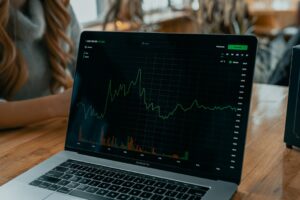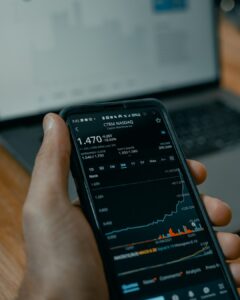Understanding the Basics: What is a Forex Trader and How Do They Make Money?
Forex trading, short for foreign exchange trading, is the buying and selling of currencies on the global currency market. It is a decentralized market where currencies are traded 24 hours a day, five days a week. Forex traders are individuals or institutions that participate in this market with the aim of making a profit.
So, what exactly is a forex trader and how do they make money? Let’s delve into the basics and understand the mechanics of forex trading.
A forex trader is an individual or institution that engages in the buying and selling of currencies. They can be individuals trading as a side income or professionals working for financial institutions. Forex traders can trade on their own or act as brokers, executing trades on behalf of clients.
Forex traders make money through a variety of strategies and techniques. The most common methods include:
1. Speculation: Forex traders often speculate on the direction of currency pairs, aiming to profit from changes in exchange rates. For example, if a trader believes that the value of the Euro will increase against the US Dollar, they will buy Euros with Dollars. If their prediction is correct and the Euro does increase in value, they can sell the Euros at a higher price and make a profit.
2. Day Trading: Day trading is a popular strategy among forex traders. It involves opening and closing trades within the same day, taking advantage of small price movements. Day traders often use technical analysis tools and indicators to identify short-term trends and make quick profits.
3. Carry Trading: Carry trading is a strategy where traders take advantage of interest rate differentials between currencies. They borrow a currency with a low-interest rate and use it to buy a currency with a higher interest rate. By holding onto the higher-yielding currency, traders can earn the interest rate differential as profit.
4. Arbitrage: Arbitrage is a strategy that takes advantage of price discrepancies between different forex markets. Traders buy a currency at a lower price in one market and sell it at a higher price in another market, making a profit from the price difference. Arbitrage opportunities are rare and require quick execution due to the efficiency of the forex market.
5. Automated Trading: With advancements in technology, many forex traders now rely on automated trading systems or algorithms. These systems use pre-programmed rules and algorithms to execute trades based on specific criteria. Automated trading can be based on technical indicators, news events, or other factors. Traders using automated systems aim to remove human emotion and biases from trading decisions.
It’s important to note that forex trading comes with inherent risks, and not all traders are successful. It requires a deep understanding of market dynamics, risk management, and constant monitoring of economic and geopolitical events that can impact currency values. Forex traders need to be skilled at analyzing charts, interpreting economic data, and managing their emotions to make informed trading decisions.
To start forex trading, individuals need a computer or mobile device with internet access, a trading platform, and a funded trading account with a forex broker. Most brokers offer demo accounts for beginners to practice trading without risking real money. It is crucial to educate oneself about the basics of forex trading, including technical and fundamental analysis, risk management, and trading psychology before diving into the live markets.
In conclusion, forex traders are individuals or institutions that engage in the buying and selling of currencies on the global forex market. They make money through various strategies such as speculation, day trading, carry trading, arbitrage, and automated trading. Forex trading requires knowledge, skill, and discipline to navigate the ever-changing market conditions. It is essential for aspiring traders to educate themselves and practice trading with caution before risking real capital.






